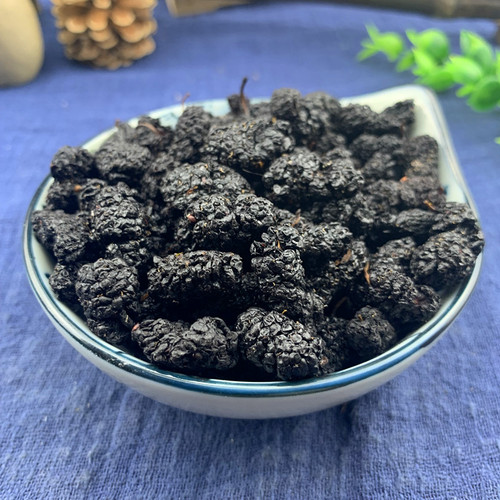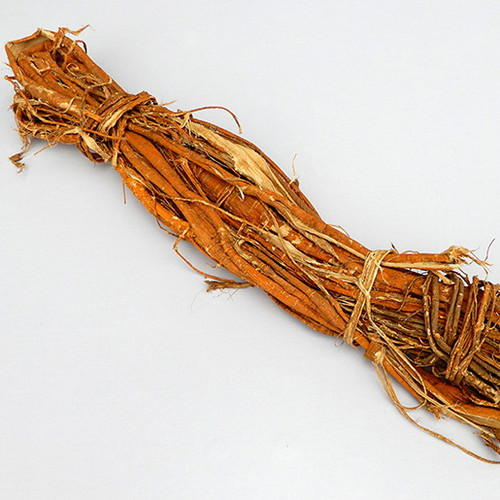Product Overview
Parts used: Dried root bark
TCM category: Herbs that cool the Blood
TCM nature: Cold
TCM taste(s): Sweet
Meridian affinity: Lung
Scientific name: Mori alba
Use of mulberry bark (Sang Bai Pi) in TCM
Please note that you should never self-prescribe TCM ingredients. A TCM ingredient is almost never eaten on its own but as part of a formula containing several ingredients that act together. Please consult a professional TCM practitionner, they will be best able to guide you.
Preparation: Remove the rough skin, soak in water, cut in sections and dry
Dosage: 9-15g
Main actions according to TCM*: Clears heat from the lung, relieves asthma and induce urination to disperse swelling
Primary conditions or symptoms for which mulberry bark may be prescribed by TCM doctors*: Coughing Dry cough Whooping cough Asthma Oliguria
Common TCM formulas in which mulberry bark are used*:
For asthma or chronic bronchitis combine mulberry bark with ginkgo nuts (Bai Guo), ephedra (Ma Huang), perilla seeds (Zi Su Zi), coltsfoot flowers (Kuan Dong Hua), apricot seeds (Xing Ren), baikal skullcap roots (Huang Qin), crow-dipper rhizomes (Ban Xia) and liquorice (Gan Cao).
For aiding in the withdrawal from tobacco addiction combine mulberry bark with houttuynia (Yu Xing Cao), ginseng (Ren Shen), snake gourds (Gua Lou) and platycodon roots (Jie Geng).
Key TCM concepts behind mulberry bark (Sang Bai Pi)'s properties
In Traditional Chinese Medicine (TCM), mulberry bark are plants that belong to the 'Herbs that cool the Blood' category. Herbs in this category are used to clear inflammatory and infectious conditions, referred to as 'Internal Heat' in TCM. This is why most of the herbs in this category will have both antibacterial and antiviral properties. In TCM one has too much 'Heat' in their body as a result of a deficiency of 'Yin' (which is Cold in nature, see our explanation on Yin and Yang) or, more commonly, an excess of Yang (Hot in nature). Herbs that cool the Blood treat the latter and as such tend to be Cold or Neutral in nature.
As suggested by its category mulberry bark are plants that are Cold in nature. This means that mulberry bark typically help people who have too much "heat" in their body. Balance between Yin and Yang is a key health concept in TCM. Those who have too much heat in their body are said to either have a Yang excess (because Yang is Hot in nature) or a Yin deficiency (Yin is Cold in Nature). Depending on your condition mulberry bark can help restore a harmonious balance between Yin and Yang.
Mulberry bark also taste Sweet. The so-called "five elements" theory in Chinese Medicine states that the taste of TCM ingredients is a key determinant of their action in the body. Sweet ingredients like mulberry bark tend to slow down acute reactions and detoxify the body. They also have a tonic effect because they replenish Qi and Blood.
The tastes of ingredients in TCM also determine what organs and meridians they target. As such mulberry bark are thought to target the Lung. In addition to performing respiration, the Lungs are thought in TCM to be a key part of the production chain for Qi and the body fluids that nourish the body.








